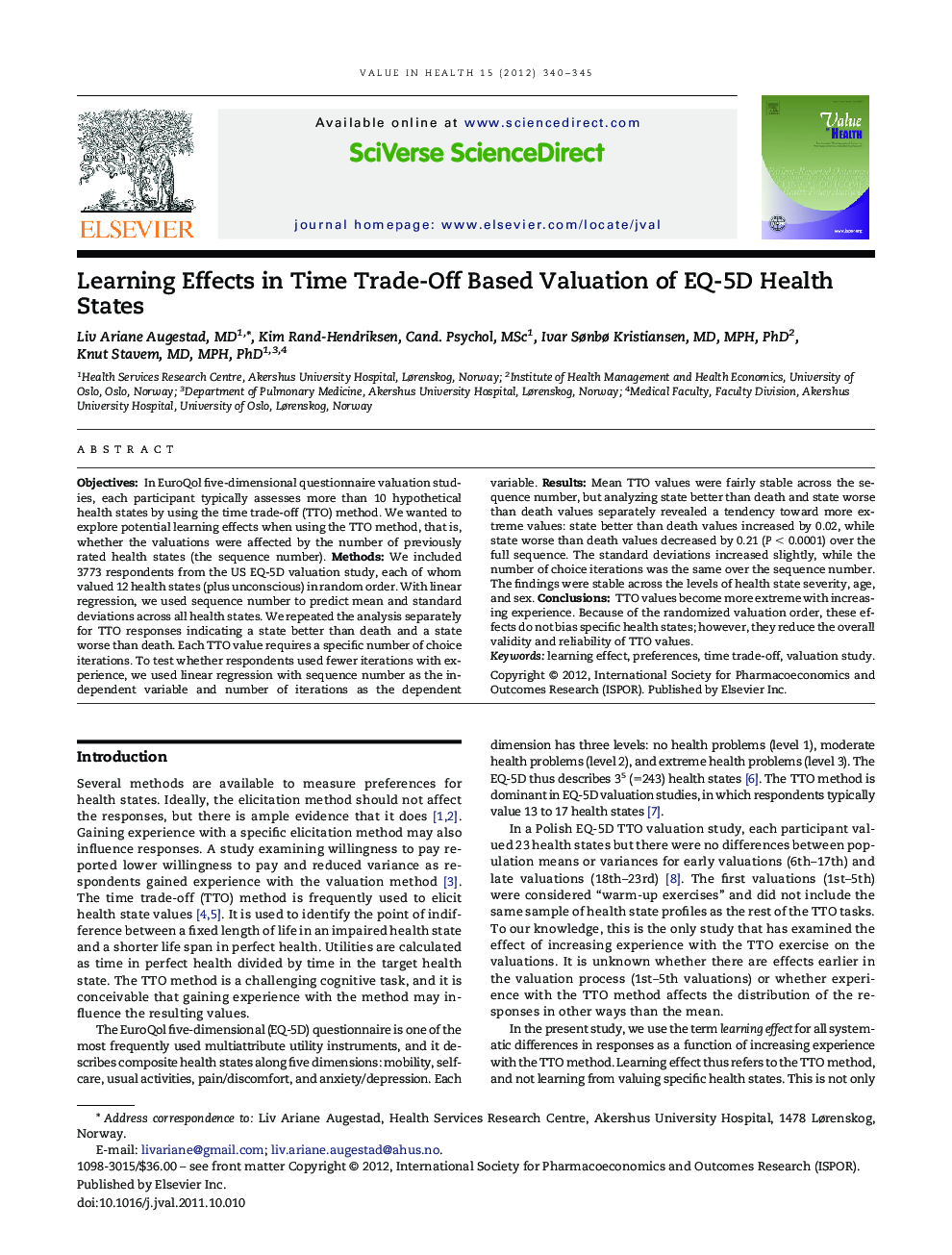| Article ID | Journal | Published Year | Pages | File Type |
|---|---|---|---|---|
| 988576 | Value in Health | 2012 | 6 Pages |
ObjectivesIn EuroQol five-dimensional questionnaire valuation studies, each participant typically assesses more than 10 hypothetical health states by using the time trade-off (TTO) method. We wanted to explore potential learning effects when using the TTO method, that is, whether the valuations were affected by the number of previously rated health states (the sequence number).MethodsWe included 3773 respondents from the US EQ-5D valuation study, each of whom valued 12 health states (plus unconscious) in random order. With linear regression, we used sequence number to predict mean and standard deviations across all health states. We repeated the analysis separately for TTO responses indicating a state better than death and a state worse than death. Each TTO value requires a specific number of choice iterations. To test whether respondents used fewer iterations with experience, we used linear regression with sequence number as the independent variable and number of iterations as the dependent variable.ResultsMean TTO values were fairly stable across the sequence number, but analyzing state better than death and state worse than death values separately revealed a tendency toward more extreme values: state better than death values increased by 0.02, while state worse than death values decreased by 0.21 (P < 0.0001) over the full sequence. The standard deviations increased slightly, while the number of choice iterations was the same over the sequence number. The findings were stable across the levels of health state severity, age, and sex.ConclusionsTTO values become more extreme with increasing experience. Because of the randomized valuation order, these effects do not bias specific health states; however, they reduce the overall validity and reliability of TTO values.
